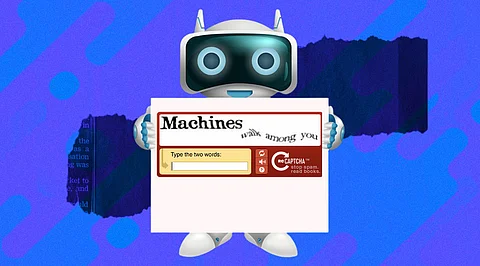
- Insights
- Cryptocurrencies
- Stocks
- White Papers
- Industry
- Geography


It is not that typing the CAPTCHA is something we do out of pleasure but it is more or less agreed that for the host it is a safe way of ensuring that some person, a human being, is filling up the forms and not the machine. But that safety valve value of CAPTCHA is soon going to be a thing of the past. Machine Learning (ML) in the form of Deep Learning has progressed enough to claim that it can make the computer fill-up the CAPTCHA with a certain ease. This can be done even if one does not have the application source code for generating the CAPTCHA image. In a number of cases, the time it takes to do it is less than fifteen minutes. The degree of accuracy of the act is stated to be as high as 96 percent. This very development perhaps signals that in the ongoing tussle for supremacy between humans and machines the latter seems to have strengthened its position to a considerable degree. In some quarters it is being said that it basically signals the surrender of human beings to machines.
CAPTCHA, created in 2000 by researchers of Carnegie Mellon University, refers to a "completely automated public Turing test to tell computers and humans apart." But the assurance is clearly under threat. Even the most sophisticated CAPTCHAs are being broken. There are some arithmetical calculations that aid the whole process of CAPTCHA breaking. The 'breakers' are candid enough to admit that it does not require one to possess great mathematical talent nor does it require a computer with great sophistication. It may be mentioned that the common thread in the act of breaking is found in having found an appropriate dataset that does not require to be huge. According to an article, published in MIT Technology Review, it is the intelligence startup, Vicarious, which did it with some credibility in 2013, though there may be such successful efforts made earlier than that. (However, Vicarious made it public in 2017.) Mentioning that brain mimicking software is capable of separating humans from machines, it was clarified that Vicarious did it "with a visual perception system that can mimic the brain's ability to process visual information and recognize objects." Therein lies the claim of the machine's 'win' over human beings through ML.
But while this may cause a fair degree of concern it may be too early to say that the day of human surrender to machines is just around the corner. Admittedly, machine learning or ML and its 'Deep' variety have proven the power of the machines to an incredible degree, putting the 'human case' under tension. But at the same time. Apart from the age-old argument that all such instances of mechanical victories are designed by human beings themselves, efforts are also on to invent ways of human interaction at the centre stage and counter the invasive mechanical aggression of such kind. The most familiar case in this regard is Google's response to CAPTCHA breaking by the "I am not a robot" kind of thing. CAPTCHA is now in the pipeline, which rests on distorted text tasks involving not just reading by a person but also her/his action based on the reading.
All said and done, a concerted attempt to use AI and ML to make human beings subservient to machines is evident, but as long as resistance is also there an emphatic victory march of the machines has to wait.
Wikipedia Hangs 'No Entry' Board for Bitcoin and Ethereum Donations
Top 10 Shiba Inu Price Level Predictions from Experts for 2022 and Beyond
Python Memory Error is Becoming a Concern for Developers Now
Top 10 Open-source Cybersecurity Tools for Businesses
Top 10 Harvard Courses to Learn Artificial Intelligence in 2022
Shhh! Google Might Fire You if you Question its AI Inabilities
